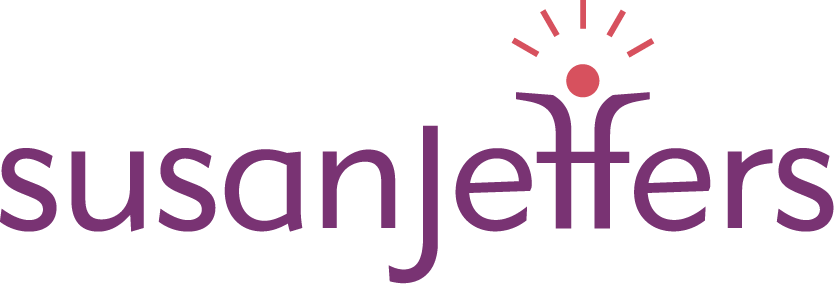Adapted from the works of Susan Jeffers, Ph.D.
We can all agree that the world would be a better place if more people were kind and considerate. And we know that to make the world a better place, kindness starts with each of us. But there are situations when we think we are being kind when, in fact, we are just going through the motions.
How often do you say to yourself, “I should” or “I shouldn’t?” I should do the laundry. I shouldn’t have that extra cookie. I should call my aunt. I shouldn’t go out tonight. I should check in on my friend. There are so many shoulds and shouldn’ts we confront every day that we make our lives so much heavier than they need to be.
In End the Struggle and Dance with Life, Susan wrote, “So much of the weight of our lives comes from the huge amount of shoulds and shouldn’ts others try to impose upon us and, ultimately, those we impose on ourselves. Shoulds and shouldn’ts are signs of our need to conform. It is better that we learn to follow our heart…to follow our instinct about the way life is best lived for who we are as human beings.”
When we should ourselves, we are operating from our Lower Selves. Often, even if we think we are doing something out kindness, we aren’t really. We are doing it out of obligation which can lead to resentment. “Sometimes we are called upon to do things for others, such as bringing food to a sick relative, and sometimes we may not be in the mood to do these things for others, which causes us to feel resentful,” Susan said. Resentment is a feeling that comes directly from our Lower Selves.
“Shoulds come from the Lower Self fragment of our lives,” said Susan. “They make us worry. They make us do too much, think too much, plan too much. These shoulds pull us apart and make us lose our center. From a Higher Self perspective, our enjoyment and contribution to life comes from following our own heart.”
Remember the “Act-As-If” exercise from both Feel the Fear and Do It Anyway and Embracing Uncertainty? It’s when you ask yourself, “If I truly made a difference in this world …” and then answer that question with what actions you could take to make a difference. In the case of calling our actions kind when they are coming from the Lower Self place of should, this exercise can help you see where and how you can turn a should from resentment into a joyful, loving act.
For example, if you see a discarded plastic bag on the ground in the park, you have a choice in your response. If you think you should pick it up, you may wonder why it’s your responsibility to do so. It’s not your plastic bag. You didn’t litter. Cleaning up after a stranger’s thoughtless action isn’t your problem, but you want to visit a park without litter. If you “should” pick it up, you are imposing an obligation on yourself, which could lead to resentment, annoyance or even anger. Definitely, a Lower Self space. Yet if you ask yourself upon seeing the trash, “If I truly made a difference in the world …” it is likely that your response would come from that other place, your Higher Self. Picking up that single piece of someone else’s litter now becomes a joyful, loving act of kindness. No obligation. No resentment. No anger.
As Susan wrote, “We learn that, whether in the enclosed space of our home or out in the vastness of the world, every action we take helps determine whether this is a world filled with hate and conflict or a world filled with peace and love.”
Doing a kind act without the intention to make the world a better place takes the meaning from it. When we should ourselves into being nice or supportive, we aren’t contributing to making the world a better place. We are doing the bare minimum of existing and wallowing in our Lower Self. The “Acting-As-If” exercise can help us to see that intention and commitment are key to being kind and making this world a better place.
Susan said it best when she wrote, “When we move beyond the Lower Self and enter the realm of the Higher Self, our resentment disappears as we understand the contribution we are making to someone else’s life. From this perspective, we become infused with an energy of love and caring. Our life is enriched instead of diminished. In this way, our should is transformed into a want to.”
Copyright © 2021 Susan Jeffers, LLC All rights reserved.
(To use all or any part of this article, please go to admin@susanjeffers.com for permission.)
